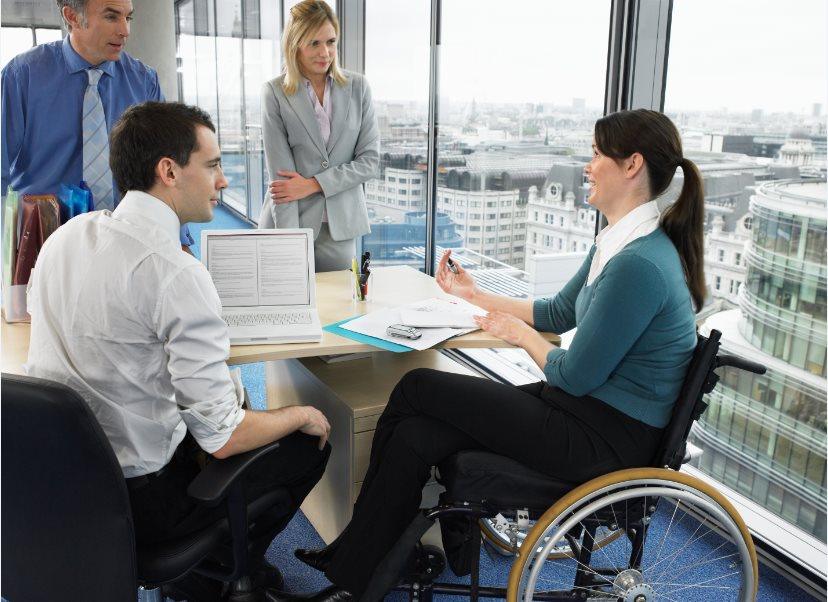Access to work: Funding increase for disabled workers
- Published

The maximum amount disabled people can claim to help them access employment is set to increase to £57,000 a year.
This is a £15,000 - or 38% - rise from the current cap on Access to Work funding, which was introduced in 2015.
The work and pensions secretary said the move was part of the government's commitment to have one million more disabled people in work by 2027.
But campaigners have launched a legal challenge saying the cap could affect deaf people and those with high needs.
Access to Work provides money to cover the extra costs disabled people face when working - such as hiring support workers, buying specialised equipment and travel expenses.
Announcing the change in a written statement from the government, Esther McVey said it believed disabled people "should have the opportunity to thrive".
The cap was set in 2015 at 1.5 times the average salary, but it is now double that average.
'Entirely arbitrary'
The new cap level will apply to new claimants from April.
However, campaigners argue the existence of a cap will still disproportionally affect deaf people and those with high-level needs.
Campaign group Inclusion London called the cap "inappropriate and discriminatory."
They said: "It is still a fixed limit set in an entirely arbitrary way, whereas costs for highly specialised equipment and good quality professional interpreters, tailored to an individual's needs, can exceed this amount or vary from year to year."
But the UK Council on Deafness welcomed the increase and said it would help deaf people to access "vital" communication support, "enabling them to thrive and succeed in the workplace".
- Published18 March 2018
- Published17 March 2018
